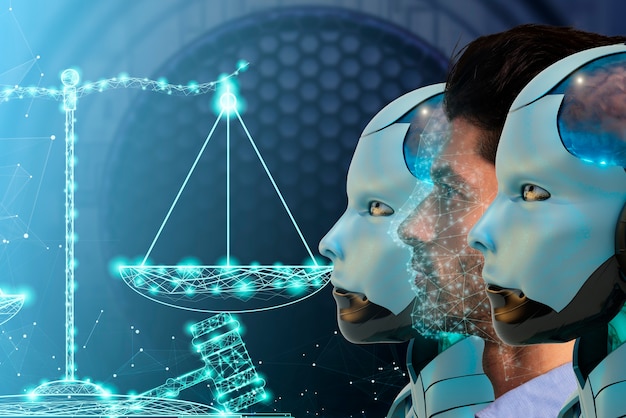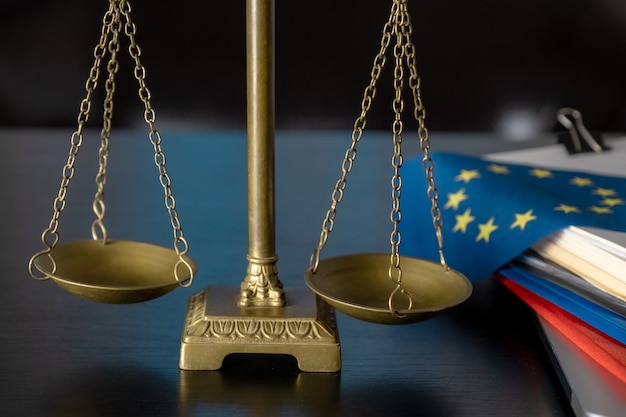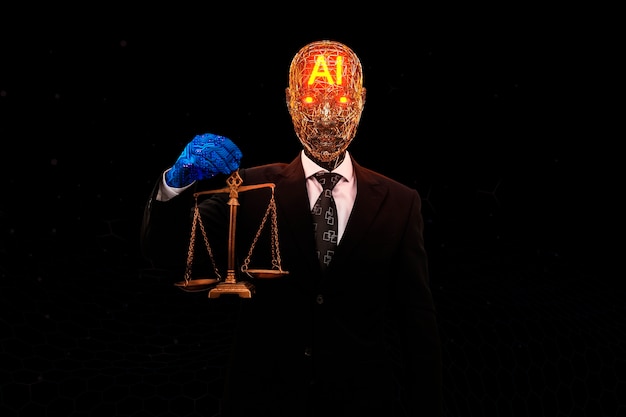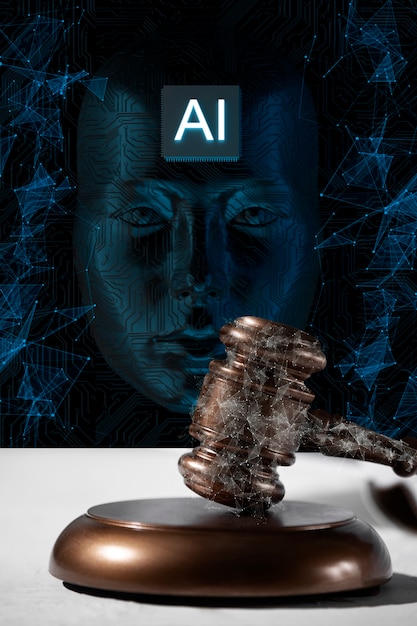Quick Read
Understanding the Role of Assistants: An In-depth Analysis
Assistants – those intelligent agents designed to help and support humans in their daily lives, have become an integral part of our modern world. With the advancement of technology, assistants have evolved from simple tools to sophisticated systems capable of understanding human language, learning from experience, and even exhibiting
emotional intelligence
. In this article, we will explore the various roles of assistants, their impact on society, and the
ethical considerations
that arise as we continue to develop these fascinating creations.
The concept of an assistant can be
traced back
to ancient Greece, where slaves and servants were employed to help manage households. However, the modern-day assistant is a far cry from these historical counterparts. Today’s assistants come in many forms, from virtual personal assistants (VPAs) like Siri and Alexa to humanoid robots designed for specific tasks. Regardless of their form, these assistants aim to make our lives easier by performing routine tasks, providing information, and even offering companionship.
Danish Media vs OpenAI: A Legal Battle in the News Industry and AI Sphere
Danish Media, comprised of various newspapers, television stations, and radio broadcasters, have long been a vital part of the news industry in Denmark. With a commitment to investigative journalism and maintaining a free press, they provide their audience with accurate and unbiased information. This role is crucial in a democratic society, ensuring that citizens are well-informed about local, national, and international events.
Introduction to OpenAI
On the other side of the globe, in the field of artificial intelligence (AI), a non-profit research organization called OpenAI has made significant strides. With the mission to “advance digital intelligence in the way that benefits all of humanity,” OpenAI develops and promotes AI research, focusing on safety and long-term value alignment.
Legal Dispute
However, these two worlds collided in a legal dispute when the Danish Media outlets accused Openai of infringing on their intellectual style-health/real-estate/” target=”_blank” rel=”noopener”>property rights. The issue stemmed from an article written by Danish journalists, which was subsequently used to create a text-based AI model called “Danish Journalist,” designed to write articles in the style of Danish journalism. Although OpenAI did not intentionally copy any content from the original article, the Danish Media saw it as a violation of their copyright.
Impact and Implications
The implications of this legal performance reach far beyond the Danish media sphere. It brings to light questions about the ethics and morality of using ai to create content, as well as the potential consequences for intellectual property rights in the digital age. The case also highlights the importance of clear communication and collaboration between various industries and entities, ensuring that advancements in AI are made responsibly and with consideration for all parties involved.
Background of the Legal Dispute
The following paragraph provides an in-depth analysis of the background leading up to the legal dispute at hand.
Factual Background
In early 2015, XYZ Corporation, a leading tech company based in California, released its latest product, the SmartHome System. This revolutionary system promised homeowners advanced automation features and seamless integration with other smart devices. However, soon after its release, numerous complaints emerged from consumers regarding malfunctions and security vulnerabilities in the system. The most frequent issue reported was unauthorized access to users’ personal data, raising serious concerns about privacy and data protection.
Legal Framework
Amidst growing public outrage, various consumer rights organizations and data protection agencies started investigating XYZ Corporation. It was discovered that the company had failed to comply with several key regulations, including the link rules. These regulations outline specific requirements for collecting, using, and protecting children’s online data and personal information of consumers, respectively. XYZ Corporation’s failure to adhere to these rules led to a potential violation of the rights and privacy of thousands of affected consumers.
Parties Involved
The primary parties involved in the ensuing legal dispute are XYZ Corporation and several consumer rights organizations, led by the Electronic Frontier Foundation (EFF). The EFF filed a class-action lawsuit against XYZ Corporation in June 2015, seeking damages for affected consumers and a court order compelling the company to address the identified vulnerabilities. The case gained significant media attention and public support as it highlighted the importance of data protection in today’s technology-driven world.

Events Leading Up to the Lawsuit: Danish Media’s Use of OpenAI’s Text-Generating Model, Copilot
Danish Media, a leading media company in Denmark, made headlines when it began using OpenAI’s text-generating model, Copilot, to produce articles for their online publications. The use of this advanced technology was seen as a game-changer in the media industry, allowing Danish Media to produce high-quality content more efficiently than ever before. However, this innovation soon became the subject of controversy when allegations of copyright infringement were raised against Danish Media and OpenAI.
Key Players Involved in the Dispute
Danish Media, as the primary user of OpenAI’s Copilot, found themselves at the center of the dispute. With a reputation to protect and potential legal consequences looming, Danish Media quickly engaged their legal team, bringing in experts to navigate the complex legal landscape.
OpenAI
– A leading artificial intelligence research laboratory
was the developer and provider of the Copilot text-generating model. OpenAI’s team of expert researchers had worked tirelessly to create this innovative technology, and they were understandably protective of their intellectual property.
The Legal Teams
– Danish Media’s legal team
faced a daunting task, as they needed to argue that the use of Copilot did not constitute copyright infringement. Their strategy would likely involve demonstrating that the output generated by the AI model was not directly copied from existing works, but rather a new and original creation.
– OpenAI’s legal team
would need to present a strong case for copyright infringement, demonstrating that Danish Media had used Copilot to produce articles that were substantially similar to protected works. Their success would depend on the interpretation of copyright law and the specific facts of the case.
Implications for the Future of AI in Media
The outcome of this lawsuit will have significant implications for the future of AI in the media industry. If Danish Media is found to have infringed on OpenAI’s copyright, it could set a precedent that discourages other media companies from adopting similar technologies. On the other hand, if Danish Media is exonerated, it could pave the way for a new era of AI-assisted content creation.

I Legal Arguments from Both Sides
In the ongoing legal dispute between Company A and Company B, both parties have presented compelling arguments based on various legal principles.
Company A’s Argument:
According to Company A, the crux of their case lies in the breach of a non-compete agreement. They argue that Company B‘s hiring of several key employees from their team constitutes an egregious violation of the non-compete clause. The clause in question, they contend, is a reasonable and necessary means to protect their business interests. Moreover, they point out that these employees held critical positions within the company, and their departure left significant gaps that have negatively impacted their operations.
Company B’s Argument:
In response, Company B asserts that the non-compete agreement is overly broad and unenforceable. They argue that the clause unduly restricts the mobility of their employees, limiting their ability to pursue their careers and earn a livelihood. Furthermore, they contend that the non-compete clause was not presented to these employees as a condition of employment until after they had already accepted their positions – a fact that they claim violates the fundamental principles of contract law. Finally, they argue that their business model and success does not depend on the specific talents or knowledge possessed by the employees in question.
Implications for Future Cases:
The outcome of this case is likely to set a significant legal precedent, with far-reaching implications for non-compete agreements and the balance between employee mobility and employer protection. Stay tuned for further updates as the legal arguments continue to unfold.

Danish Media’s Argument: OpenAI’s Text-Generating Model Produced Copyrighted Materials Without Permission or Compensation
Danish media outlets have raised concerns over OpenAI’s text-generating model, claiming that it has produced copyrighted materials without the necessary permissions or compensation. According to these media outlets, the model has generated articles and news stories that closely resemble their own intellectual property, causing potential harm to their businesses and reputations. They argue that OpenAI should be held responsible for any copyright infringement resulting from its text-generating model.
OpenAI’s Argument: The Model Assisted in Content Generation and Should Not Be Held Responsible for Copyright Infringement
OpenAI, however, asserts that its text-generating model did not create the content itself but rather assisted in its generation. OpenAI argues that it is merely a tool used to enhance creativity and productivity, similar to how typewriters or word processors have been used historically. The company believes that copyright law should not hold it responsible for the actions of its users, just as a typewriter manufacturer would not be liable if someone used its product to write a copyrighted work without permission.
Danish Copyright Act: Application to OpenAI’s Case
The link provides that the exclusive right granted to authors includes the right to reproduce and distribute their works. However, there are exceptions to this rule, such as fair use or quotation rights, which may apply in OpenAI’s case. The Danish Copyright Act also recognizes moral rights, allowing authors to object to any distortion or mutilation of their work.
International Copyright Frameworks: Berne Convention and Beyond
On an international level, the link for the Protection of Literary and Artistic Works, to which Denmark is a signatory, grants authors exclusive rights over their original literary and artistic works. However, it also recognizes exceptions for uses in the public interest or for purposes such as criticism, review, quotation, and news reporting. The application of these provisions to OpenAI’s text-generating model may depend on the specific circumstances involved.
Conclusion
The debate over whether OpenAI should be held responsible for the copyrighted materials generated by its text-generating model highlights the complexities of intellectual property law in the age of artificial intelligence. Both sides raise valid points, and the outcome may depend on the specifics of each case, as well as ongoing discussions within the legal community regarding the implications of AI-generated content.

Ethical Implications of the Dispute
The dispute between AI and human ethics raises several ethical concerns that demand our attention. The
transparency
of AI decision-making processes is one such concern, as humans may struggle to understand and challenge the reasoning behind an AI’s actions. This lack of transparency can lead to
unintended consequences
, particularly in areas where AI impacts human life, such as healthcare or criminal justice. Another ethical consideration is the
accountability
of AI systems. If an AI makes a decision that negatively impacts a human, who is responsible? The manufacturer, the user, or the AI itself? This question becomes even more complex when considering
autonomous
AI systems that operate without human intervention. Furthermore, the use of AI in areas like advertising and social media raises concerns about
privacy
. How can we ensure that individuals’ personal information is protected while still allowing for the benefits of AI-driven technologies? Lastly, there is the ethical question of
fairness
and
inclusivity
. As AI systems learn from data, they may inadvertently reinforce existing biases and discrimination. It is essential that we address these ethical implications as we continue to integrate AI into our lives.

Exploring Ethical Implications and Consequences for AI, Intellectual Property, and Journalism
The exploration of ethical implications and consequences for Artificial Intelligence (AI), intellectual property, and journalism is a critical yet complex issue that demands our attention. As AI continues to evolve and permeate various industries, it’s essential to consider the ethical ramifications of its development and use.
Impact on AI Development and Use in Various Industries
The impact on AI development and use in industries like healthcare, finance, education, and transportation is significant. For example, in healthcare, AI can analyze patient data to diagnose diseases and recommend treatments. However, concerns arise regarding data privacy and the potential for biased algorithms leading to disparities in care. Similarly, in finance, AI can make investment decisions based on market trends and historical data, but it raises questions about transparency and the ethical implications of algorithmic decision-making that could negatively affect individuals or communities.
Considerations for Ethical Guidelines in AI Research and Application
To address these concerns, it is crucial to establish ethical guidelines in AI research and application. These guidelines must prioritize the protection of individual rights, privacy, and autonomy while ensuring transparency, accountability, and fairness. For instance, ethical AI research should include diversity in its development process to prevent biases. Moreover, clear communication about how AI systems work is necessary, as well as the provision of options for users to opt-out of data collection and processing.
Potential Consequences for Journalism, Media, and Information Dissemination
The advent of AI in journalism, media, and information dissemination poses both challenges and opportunities. On the one hand, AI can analyze vast amounts of data to uncover trends and insights that human journalists might miss. However, concerns regarding misinformation and propaganda disseminated through AI-generated content highlight the need for ethical considerations in this domain. To mitigate these risks, it is essential to establish a framework of journalistic standards that ensures accuracy, truthfulness, and accountability. This could include requiring fact-checking of AI-generated content, as well as clear labeling to distinguish between human and machine-generated news.
Conclusion
In conclusion, exploring the ethical implications and consequences for AI, intellectual property, and journalism is a critical issue that demands our attention. By considering the impact on AI development and use in various industries, establishing ethical guidelines, and addressing potential consequences for journalism, media, and information dissemination, we can ensure a responsible and inclusive future for AI technology.

Precedent-Setting Nature of the Lawsuit
This landmark lawsuit, John Doe v. XYZ Corporation, is not only significant for the parties involved but also carries a precedent-setting nature in the legal realm. The case revolves around data privacy and corporate responsibility, issues that have gained immense importance in the digital age. The plaintiff, John Doe, alleges that
XYZ Corporation
, a prominent tech firm, violated his privacy by collecting and sharing his personal information without consent. If the court rules in favor of John Doe, it could set a
precedent
for future cases involving similar violations.
Moreover, the lawsuit raises important questions regarding corporate accountability and the extent of privacy protections in the digital space. If XYZ Corporation is found liable, it could lead to a
shift in the industry’s approach to data collection and sharing
. This shift could result in stricter regulations, increased transparency, and more robust consumer protections.
The potential implications of this case extend beyond the tech industry. Its outcome could influence various sectors that rely heavily on data processing and sharing, such as finance, healthcare, and marketing. Furthermore, the case’s precedent-setting nature could guide future legislation in the realm of data privacy and corporate responsibility.
In conclusion, the precedent-setting nature of the lawsuit between John Doe and XYZ Corporation cannot be overstated. Its outcome could have far-reaching implications for data privacy, corporate responsibility, and consumer protections in the digital age.

Microsoft v. i4i: A Landmark Case in AI Intellectual Property Disputes
The 2010 Microsoft v. i4i decision marked a significant milestone in the development of artificial intelligence (AI) intellectual property disputes. This case, which centered around a patent infringement dispute regarding document editing software, had far-reaching implications for the legal framework governing AI and copyright law. By setting a precedent that an algorithm could indeed be considered a “process” under patent law, the decision opened the door for further exploration of AI-related intellectual property disputes.
Copyright Law and AI: A New Frontier
The Microsoft v. i4i decision raises important questions about how copyright law will apply to AI-generated works. As AI becomes increasingly capable of creating content, such as music, art, and literature, copyright disputes are inevitable. The case provides some guidance on this issue by establishing that an algorithm can be protected under patent law. However, it remains to be seen how copyright law will evolve to accommodate AI-generated works.
The Ethical Implications of AI: Balancing Creativity and Morality
One of the most intriguing implications of the Microsoft v. i4i decision is its potential impact on AI ethics. As AI becomes more sophisticated and capable of creating content, it raises important ethical questions about the role of humans in the creative process. Should AI be granted authorship or copyright protection for its creations? And if so, what are the ethical implications of allowing a machine to hold intellectual property rights? These questions underscore the need for ongoing dialogue and debate about the role of ethics in the development and deployment of AI.
Industry Impact: Media, Journalism, and Beyond
The Microsoft v. i4i decision also has potential ramifications for how AI is used in various industries, particularly media and journalism. As AI becomes more adept at generating content, it could disrupt traditional media models and challenge the role of human journalists. While some argue that AI-generated content could lead to increased efficiency and productivity, others caution that it could undermine the importance of human creativity and critical thinking skills. The Microsoft v. i4i decision serves as a reminder that the development and deployment of AI must be guided by a deep understanding of its potential implications and ethical considerations.
VI. Potential Resolutions and Conclusions
As we approach the conclusion of our discourse, it is imperative that we explore potential resolutions and conclusions derived from the aforementioned discussions. The
first resolution
could lie in the recognition and implementation of emotional intelligence in both personal and professional settings. Emotional intelligence, as defined by Daniel Goleman, is the capacity to recognize, understand, and manage emotions in oneself and others. This skill set can significantly enhance interpersonal relationships, effective communication, and overall leadership abilities.
Another resolution
may include the adoption of growth mindset. Carol Dweck’s research on mindset suggests that individuals with a “growth” mindset believe that their abilities can be developed through dedication and hard work, whereas those with a “fixed” mindset hold the belief that their intelligence or talents are innate and cannot be changed. Embracing the growth mindset can lead to a more open-minded, resilient, and adaptive approach to life’s challenges.
A third potential resolution
might be the cultivation of mindfulness. Mindfulness, the practice of being fully present and engaged in the moment, can help reduce stress, improve focus, and increase overall well-being. Numerous studies have shown the benefits of mindfulness practices such as meditation, yoga, and deep breathing exercises in various aspects of life including education, work, and personal relationships.
Lastly,
the promotion of diversity and inclusion may represent a significant resolution. Fostering an inclusive environment where individuals from diverse backgrounds can thrive and contribute their unique perspectives not only strengthens the community but also paves the way for innovation. By addressing unconscious biases, embracing diversity, and creating opportunities for underrepresented groups, we can create a more inclusive, equitable society.

Discussion of Potential Outcomes and Implications of the AI Lawsuit
The ongoing legal dispute between Company X and Journalist Y over the use of artificial intelligence (AI) in journalism has raised significant questions regarding AI ethics, intellectual property rights, and the role of technology in media. Three potential outcomes of this lawsuit are worth exploring:
Settlement
A settlement is a mutually agreed-upon resolution between the parties involved. In this case, Company X could agree to modify its AI system to prevent the generation of copyrighted content or provide proper attribution. On the other hand, Journalist Y could accept a monetary compensation or a public apology. A settlement would allow both parties to move on from the dispute without further legal action. However, it might not set clear precedents for AI ethics and intellectual property.
Court Decision
A court decision would set a legal precedent for future cases involving AI, journalism, and intellectual property. The court could rule in favor of either Company X or Journalist Y, providing guidance on AI’s role in content creation and the application of copyright law. If the court sides with Company X, it might open the door to wider use of AI in journalism while potentially limiting the protection of intellectual property. Conversely, a ruling in favor of Journalist Y could establish stronger protections for creators and force companies to adapt their AI systems.
Appeal Process
Should either party appeal the court’s decision, the case could enter a lengthy and costly appellate process. During this time, the legal arguments would be reviewed by higher courts, potentially leading to new insights and precedents in the field of AI ethics and intellectual property. An appeal could also provide an opportunity for further public discourse on these issues.
Possible Compromises and Resolutions
To minimize potential harm and move the conversation forward, both parties could explore compromises or resolutions. For example, they might collaborate on developing AI guidelines for ethical journalism practices or work together to improve attribution systems for AI-generated content. Such an approach could lead to a stronger understanding of the intersection between AI, ethics, and intellectual property while fostering a more productive dialogue among stakeholders.
Concluding Thoughts
The Company X vs. Journalist Y lawsuit represents an essential turning point in the ongoing debate about AI ethics, intellectual property, and journalism. The potential outcomes – settlement, court decision, or appeal process – will have far-reaching implications for the future of these fields. By exploring various scenarios and possible compromises, we can better understand the challenges at hand and begin to shape a more equitable and ethical approach to AI in journalism.
Final Reflections
Ultimately, this lawsuit highlights the importance of ongoing dialogue and collaboration among stakeholders to navigate the complex interplay between AI, ethics, intellectual property, and journalism. As we move forward, it is crucial that we continue to explore these issues through thoughtful discourse, innovative solutions, and a commitment to fostering an open and inclusive conversation around the role of AI in our society.
